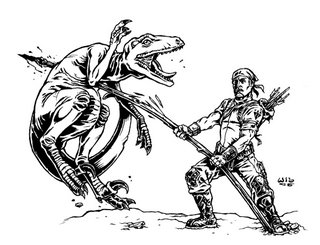Here's the original question:
Chuck,In all that research you've done... do you have any idea how
knowledge of world events propegated prior to electronic communication? It's
easy to picture messengers with specific orders whizzing about at horse speed
but what about lesser generic news?Looking over your time line from B&R I'm
wondering about things like what did the King in France know about events
happening in Rome? How long did it take for news to travel? Obviously hot gossip
moves quickly... but not everything is hot at the time it happens.
And my answer:
It depends on when of course.In this case early is better. The Roman world, with
its roads, (relatively) pacified populations in Europe and high degree of
organization could get a message from France to Italy very, very quickly and
efficiently.There were official waystations on the Roman roads for couriers and
those on official business that provided refreshments and fresh horses, allowing
a message or important person to travel 500 miles in 24 hours. Since the Roman
roads comprised more than 50,000 miles of networking routes, you could thus get
almost anywhere in Europe very fast. In the early dark ages (476 to 800) things
were much, much worse. The Roman roads could no longer be repaired, at least not
easily (the secret of concrete was lost and would remain that way for over 1000
years) and the chaos of barbarian migrations and wars prevented people from
traveling whenever possible, certainly not for something so mundane as
delivering "news".From 800-1400 things were a little better, with regular news
coming from all over via Churchmen, Kings, soldiers and occupying armies. While
news would be a much more regular occurance in this period, it would only be
from "official" sources and thus biased. So you'd get news but from a
Pravda-like source.Consider what you'd hear about a great scientific achievment,
for example. Unless it had a practical application to your Lord's farming or
military concerns, you probably wouldn't even be told. From the church you might
hear that it was wrong and the scientist a heretic because the discovery
violated dogma. From 1400-1800 you start to get more "unofficial" news, and by
the 19th century, things return to what was the norm in the Roman world, with
news crossing Europe in 1-2 days. Only in the 20th century do things actually
get better than they were in the 5th century.This is why, unlike some modern
historians, I have no problem with the term "dark ages" for the early Middle
Ages. It was a real example of a post-apocalypse society.Some technologies were
maintained if they had a military application and were relatively simple to
make, like iron weapons and iron chain mail. Other (again military technologies)
advanced some, like the stirrup and horsemanship. But by and large technology
was behind where it had been in the 5th century for 1000-1500 years. Keep in
mind in the year 500 you had indoor plumbing, public baths (and the associated
hygeine and relative freedom from disease that comes with it), concrete, the
arch, cranes capable of lifting 6-7 tons for construction and cargo loading,
wine presses, aqueducts, bridges, theaters, mechanized harvesting machines,
aqueducts for irrigation and water supply and so forth. This whole package of
engineering knowledge alone would not reappear until the early 20th century.
Hope you enjoyed this. It really is an eye opener to me every single time I drag out my notes and take a survey of the state of Roman technology from the 1st to 5th centuries.
Chuck





